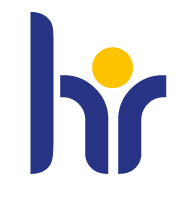DR ATHANASIOS KAMPAS
Email: This email address is being protected from spambots. You need JavaScript enabled to view it.
Tel. 0048 81 4786 797
EDUCATION
1990 – Degree in Agricultural Economics; Agricultural University of Athens, Greece;
1992 – M.Sc. in Rural Economics; Mediterranean Agronomic Institute of Chania, Greece;
1999 – Ph.D. in Environmental Economics; University of Newcastle upon Tyne, UK.
WORK EXPERIENCE
2004 – present – Associate Professor at the Agricultural University of Athens; teaching courses on: Economics of Natural Resources and the Environment, Agricultural Economics and Policy, Microeconomic Analysis II
PARTICIPATION IN RESEARCH PROGRAMMES
2005-2008 European Research Programme “Towards a Policy Model of Multifunctional Agriculture and Rural Development” (TOP-MARD), 6th Framework Research Programme (STREP 501749);
2010- 2012 LIFE08 ENV/GR/000570Q “Innovative Precision Technologies for Optimized Irrigation and Integrated Crop Management in a Water-limited Agrosystem”;
2016- 2017 ERASMUS Widening Interdisciplinary Sustainability Education (WISE)
Kampas, A., 2001. Identifying Common Fallacies in the Choice of Environmental Taxes for Agricultural Pollution Control: The Absence of Transaction Costs and the Normality of Agricultural Pollutants. Agricultural Economics Review, 2(389-2016-23402), pp.16-30.. 2
Kampas, A., Edwards, A.C. and Ferrier, R.C., 2002. Joint pollution control at a catchment scale: compliance costs and policy implications. Journal of environmental management, 66(3), pp.281-291.)
Kampas, A. and White, B., 2002. Emission versus input taxes for diffuse nitrate pollution control in the presence of transaction costs. Journal of environmental planning and management, 45(1), pp.129-139.2003
Kampas, A. and White, B., 2003. Probabilistic programming for nitrate pollution control: comparing different probabilistic constraint approximations. European Journal of Operational Research, 147(1), pp.217-228.
Franckx, L. and Kampas, A., 2003. ``The choice between emission taxes and output taxes under imperfect monitoring": a comment.". Economics Bulletin, 17(1), pp.1-7.
Kampas, A. and White, B., 2003. Selecting permit allocation rules for agricultural pollution control: a bargaining solution. Ecological Economics, 47(2-3), pp.135-147.
Kampas, A. and White, B., 2004. Administrative costs and instrument choice for stochastic non-point source pollutants. Environmental and Resource Economics, 27(2), pp.109-133.
Kampas, A. and Adamidis, K., 2005. Discussion of the paper “Cost effective policies for alternative distributions of stochastic water pollution” by Gren, Destouni and Tempone☆. Journal of environmental management, 74(4), pp.383-388.
Kampas, A. and Franckx, L., 2005. On the Regulatory Choice of Refunding Rules to Reconcile the ‘Polluter Pays Principle’and Pigovian Taxation: An Application. Environment and Planning C: Government and Policy, 23(1), pp.141-152.
Kampas, A. and Mamalis, S., 2006. Assessing the Distributional Impacts of Transferable Pollution Permits: The Case of Phosphorus Pollution Management at a River Basin Scale. Agricultural Economics Review, 7(389-2016-23360), pp.75-86.
Aftab, A., Hanley, N. and Kampas, A., 2007. Co-ordinated environmental regulation: controlling non-point nitrate pollution while maintaining river flows. Environmental and Resource Economics, 38(4), pp.573-593.
Kampas, A., Petsakos, A. and Rozakis, S., 2012. Price induced irrigation water saving: Unraveling conflicts and synergies between European agricultural and water policies for a Greek Water District. Agricultural Systems, 113, pp.28-38.
Kampas, A., Melfou, K. and Aftab, A., 2013. Designing regulatory policies for complex externalities: The case of agricultural pollution. Agricultural Economics Review, 14(389-2016-23495), pp.75-88.
Kampas, A., Petsakos, A., Vasilaki, A. and Stefopoulou, A., 2014. Rapid assessment of irrigation full cost: An application for the Pinios Local Organization for Land Reclamation, Greece. Water Resources and Economics, 6, pp.58-73.
Kampas, A., 2015. On the Allocation of Possible EU Total Allowable Catches (TAC) for the Mediterranean Swordfish: An Envy‐Free Criterion and Equitable Procedure. Journal of Agricultural Economics, 66(1), pp.170-191.
Kampas, A., 2015. Combining fairness and stability concerns for global commons: The case of East Atlantic and Mediterranean tuna. Ocean & Coastal Management, 116, pp.414-422.
Kampas, A. and Horan, R., 2016. Second-best pollution taxes: revisited and revised. Environmental Economics and Policy Studies, 18(4), pp.577-597.
Kampas, A. and Rozakis, S., 2017. On the Scarcity Value of Irrigation Water: Juxtaposing Two Market Estimating Approaches. Water resources management, 31(4), pp.1257-1269.
Iwińska, K., Kampas, A., Longhurst, K. (2019) “Interactions between democracy and environmental quality: Toward a more nuanced understanding”, Sustainability, 11(6),1728








